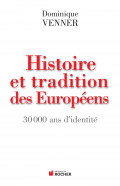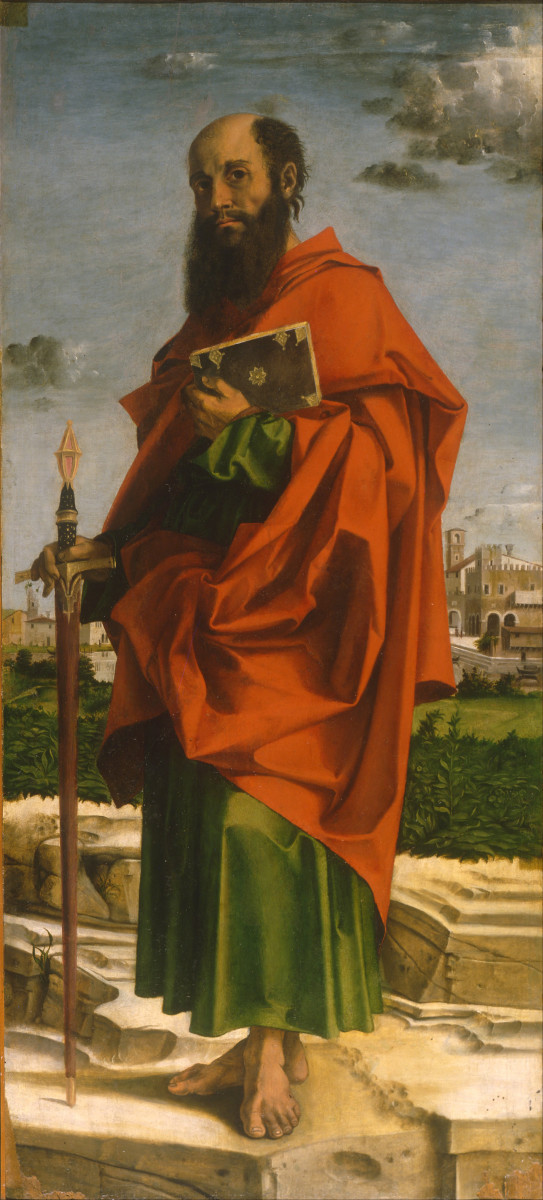The Surprising Reason Europe Was Able to Rule the World
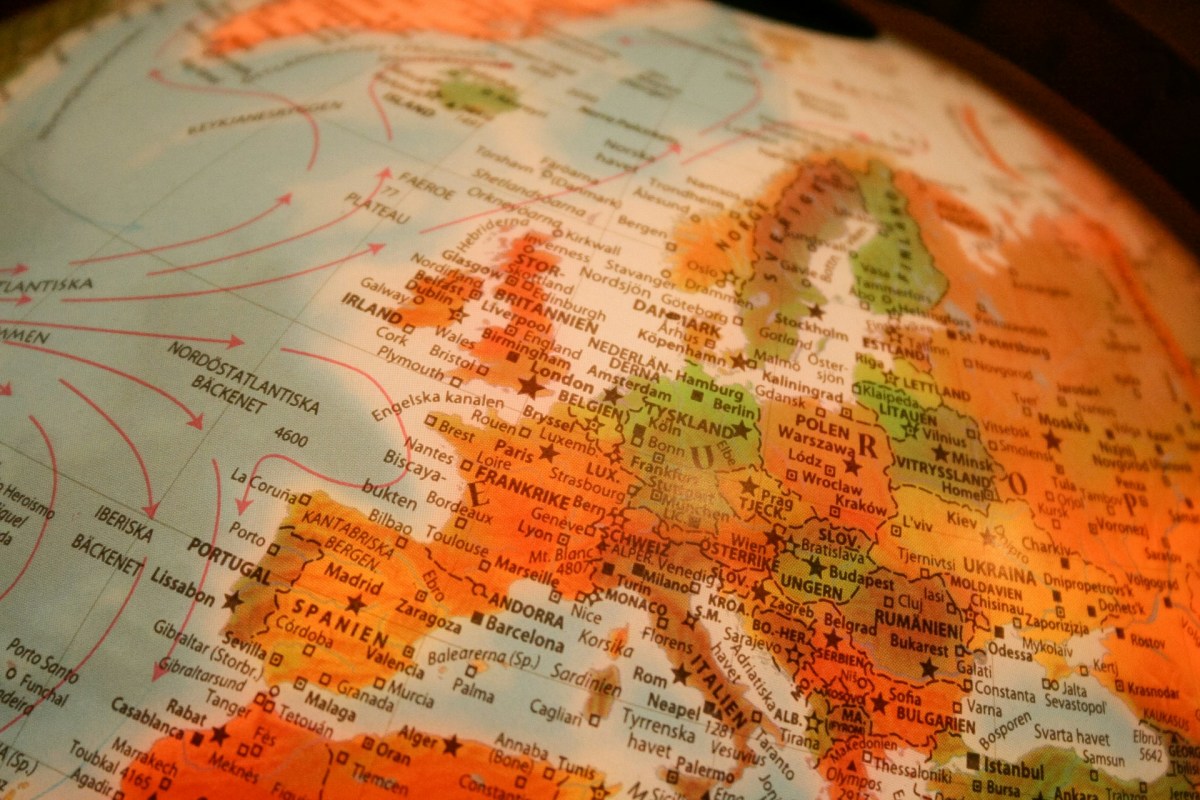
What Was the Source of European Ascendancy?
What is it that made the white race, the people of European descent, appear superior to and able to exercise dominion over all other races and peoples of the earth, to outstrip them in scientific discoveries, technological know-how, and inventions, in the arts, in exploration, in the realm of military might, and in many other fields of human endeavour?
What gave the whites the wherewithal to enslave millions of Africans and subjugate and colonise diverse populations in every corner of the globe, not excluding such ancient and relatively advanced societies as India, China, and the Islamic areas of Asia and Africa?
Did it have anything to do with their white colour, race, or DNA? Or there was something else at play?
The Simple Answer
The answer to these questions may be a surprise to the white supremacists of this world—because it is so very simple and counterintuitive to their way of thinking. To have a profound grasp of this subject, let us step back and digress into the realm of religion.
The European Origin of Christianity
The message of Christ was first given to the Jewish people. They overwhelmingly rejected it. It was the gentile populations of the Roman Empire who increasingly turned toward it. The religion eventually became universal in Europe.
It might seem strange to some, but Christianity was European from its very inception. As is well known, Palestine was a tiny province of the mighty Roman Empire during the ministry of Jesus. The Roman Empire was, of course, European in origin. Palestine was an extension of its sovereignty.
Hence, the Middle East was a cradle of Christianity in parallel with Europe—a cradle within a cradle, so to speak. Unsurprisingly, it was within the vast Roman Empire that the bulk of the Christian missionary work was carried out during the ministry of the Apostles.
Other Proofs of the European Origin of Christianity
Other proofs of the centrality of Europe to the Christian mission can be seen in the following details:
- Ancient Greek—a European language—is the original language of the New Testament.
- The name “Christ” is derived from the word christos. This is Greek for “anointed one,” a translation of the Hebrew word Mashiach (Messiah).
- Because of its Greek source, the various derivatives of Christ can also be said to be European in origin—such as “christen,” “Christendom,” “Christian,” “Christianise,” “Christianity,” and “Christmas”.
- For the best part of the Christian Dispensation, most of the Christian population could be found in Europe. Even as late as 1910, about two-thirds of the world’s Christians lived in Europe (according to Pew Research Center).
These are a few things that identify Europe as the cradle and erstwhile heartland and bastion of the faith of Jesus the Christ.
Islam and the Confinement of Christianity to Europe
For much of its life, Christianity remained a European project. The reason was simple: The emergence of Islam.
Europeans could not venture much outside their continent when Islam appeared on the scene in the 7th century CE. Moreover, the Christian faith was uprooted from much of the Middle East and North Africa (and even some parts of Europe) through conquests, dispersals, and conversions at the hands of the same Muslims.
The areas occupied by the Muslims—from North Africa (in the west) to the Middle East and beyond (in the east)—formed a massive defensive wall that blocked Europeans from venturing out of their continental stronghold.
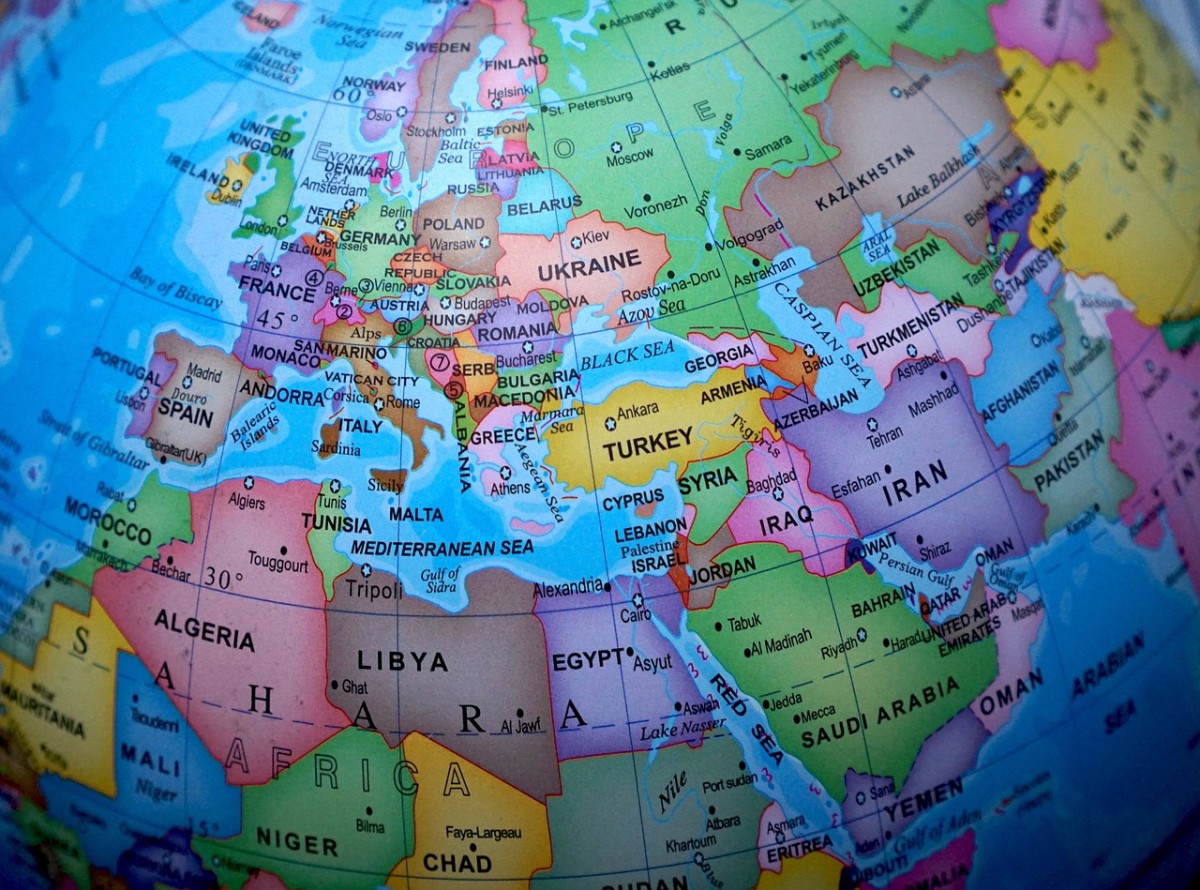
Failure of the Crusades
Of course, there were the Crusades—two centuries of wars against the Muslims (lasting from the 11th to 13th centuries) that Christians hoped would break the stalemate between the two sides and give them access to the Holy Land and elsewhere.
That venture ended in failure and did nothing to change the status quo. For this reason, Christianity remained confined to Europe (and some isolated pockets elsewhere) when Islam became the leading power and civiliser of the known world during its Golden Age (circa 8th to 13th centuries) and beyond.
The Vicissitudes of Christian Europe
Yet, it was not just the emergence of Islam that impeded the Christian outreach beyond the European continent. Similar to what happened in Jewish and Islamic lands, Christian Europe had internal ups and downs.
Spells of spiritual and material progress were invariably offset by retrogressive episodes—such as the Inquisition, the witch hunts, the burning of so-called heretics at the stake, persecution of scientists and intellectuals, devastating sectarian wars, deadly epidemics, antisemitic violence and expulsions of Jews, etc.
A Civilisation at Once Christian and European
Through all these, a common Christian heritage and culture was developing across the continent. The civilisation that ultimately emerged from all the shared experiences of Europeans was essentially Christian in character and scope.
As these developments unfolded, the diverse peoples of Europe began to project a common global ideal as they sought to reach out to the rest of the world.
And it was during the European Renaissance (circa 14th to 17th centuries) that the loftiest fruits of Christianity emerged. This was a period Europe found itself savouring its spiritual ascendancy and material progress. It was also the time Europeans began to look elsewhere for adventure.
The Maritime Route to the Rest of the World
However, going past the Islamic wall stretching between North Africa and Central Asia was not viable.
And while the maritime route seemed open to them, what was lacking was the requisite seafaring skills to ride the intimidating ocean waves. All that changed in the 15th century with improvements in European ship-building capabilities.
European Outreach at Last
With its newfound expertise, Europe confidently set out to explore the world. Thus, for the first time in their history, the white man began encountering the great diversity of races and peoples in Africa, Asia, the Pacific region, and the New World. The explorations soon turned to trading in exotic products.
In terms of modern elements of “civilisation,” the Europeans seemed far ahead of the people they encountered on these adventures. And as time went by, a two-fold mission began to take shape in the purview of the exploring nations—that of colonising as well as evangelising the populations they encountered.
During this newfound global undertaking, Europe suddenly discovered its superpower status—that it had the wherewithal to take charge of and influence most areas of the globe.
That is how Europe (the continent) attained the status of a global superpower, the first in the history of humanity.

Why Europe Surpassed Other Continents
Europe’s global adventure began when Portuguese ships first appeared on the west coast of Africa early in the 15th century. Over the course of five centuries, Europeans managed to reach every corner of the globe.
They were ahead of every region of the globe in science, technology, the arts, exploration, military prowess, governance, nation-building, and other fields of human endeavour. This enabled them not only to scatter around the globe but to colonise most other societies on earth—be they in Africa, the Americas, Asia, or Oceania.
In so doing, they asserted their claim to be the most advanced civilisation on earth. Their takeover of vast territories in North America, Australia, New Zealand, and scattered islands elsewhere is a testimony to their hegemony.
So, how did Europeans edge out all other indigenous groups worldwide and reign supreme over them?
The Religious Factor
The first and most important reason for the seeming superiority of Europeans (over the centuries under consideration) was their Christian faith.
Every religion starts small. It grows over time to bring a great civilisation into being over a large swathe of territory—a civilisation that is spiritually, culturally, and materially superior to what existed before.
Christianity was the penultimate religion at this stage. It was founded before Islam. Islam appeared in the 7th century (of the Christian Era), experienced its Golden Age in the 8th to 13th centuries, and then began a gradual process of decline.
Yet the decline was so far-reaching that early in the 20th century, the all-powerful Ottoman Empire (the embodiment of the Sunni Islamic caliphate) would disintegrate and cease to exist.
By then, most Islamic countries of Africa, the Middle East, and other parts of Asia had been systematically subjugated and turned into colonies and protectorates of Western Christian powers.
This showed the extent to which Islam, the latest religion, had declined. All other faiths—Sabianism, Hinduism, Judaism, Zoroastrianism, and Buddhism—being much older than Christianity, had also long experienced their apogees of civilisation and subsequently declined. Hence, like Islam, they were all in a much weaker spiritual and material state than Christianity.
Christianity was at a higher state spiritually and materially at this stage than all other faiths on earth. But given that Christianity came before Islam, why did Islam decline ahead of Christianity?
The Renaissance
The answer is that Islam did not decline ahead of Christianity. Christianity was already in its Dark Ages (period of decline) in the 8th century when the Islamic Golden Age began, and it remained in that state throughout the Golden Age, which lasted until the 13th century.
However, something else happened in Christianity that has never happened to the same extent in other religions:
Through various modes of interaction between the Christian lands and the adjoining realm of Islam, Europe became spiritually and materially revitalised. The gloom of the Dark Ages disappeared, and the Renaissance was born. The Renaissance was to empower Europe far beyond anything that had ever been achieved on earth.
But, again, why?
The Universality of Christianity
Islam (the religion after Christianity) was a specific faith sent to a specific group of people—the pre-Islamic tribes of the Arabian Peninsula—to address their backward practices and elevate them spiritually and materially.
Followers of this faith follow the teachings of their holy book (the Qur’an). It obliges them to observe daily rituals and abide by detailed laws. Arabic remains the religion’s unchangeable language.
While all the laws of Islam were perfect at the time of their revelation, over time—with many conflicting interpretations of the religious leaders—they began to have a suffocating effect on the outward development of Islamic societies.
Some of the laws, such as slavery, polygamy, jihad, and punishment for sundry crimes, are not being implemented or deemed desirable even in many Muslim-majority countries today.
On the other hand, Christianity came with fewer laws and rituals and had no attachment to any specific language.
This freedom made Christianity more adaptable to changing times and cultures. And so, while the Islamic spirit was being suffocated by its rigid system (as was the case with the other ancient faiths), Christianity had no such difficulty and was able to borrow the positive elements of Islam and make adaptations.
This made it possible for Christian Europe to leap ahead and achieve a global superpower status where Islam had only attained a regional superpower status (covering parts of Africa, Asia, and Europe).
But why were Christians saddled with fewer laws and rituals and thus enabled to outstrip Muslims in global spread?
Go ye into all the world, and preach the gospel to every creature. He that believeth and is baptized shall be saved (Mark 16:15-16).
The Great Commission
The reason Christians were saddled with fewer laws and rituals lay in the mission Jesus had assigned to his followers. It was a spiritual mission—popularised in modern parlance as The Great Commission.
For the first time in the history of humankind, followers of a religion were explicitly tasked with spreading the message of that religion across an entire planet rather than to neighbouring lands.
When explaining the signs of the Last Day, for instance, Jesus predicted:
And this gospel of the kingdom shall be preached in all the world for a witness unto all nations; and then shall the end come. (Matthew 24:14; cf. Mark 13:10)
After his resurrection, Jesus unequivocally instructed his disciples:
Go ye therefore, and teach all nations, baptizing them in the name of the Father, and of the Son, and of the Holy Ghost: Teaching them to observe all things whatsoever I have commanded you … (Matthew 28:19-20)
In Mark’s Gospel, “the gospel” was to be preached “to every creature” in “all the world”:
Go ye into all the world, and preach the gospel to every creature. He that believeth and is baptized shall be saved; but he that believeth not shall be damned. (Mark 16:15-16)
Meanwhile, in the Gospel of Luke, the directive given by Jesus was that “repentance and remission of sins should be preached in his name among all nations, beginning at Jerusalem.” (Luke 24:47)
His final instruction (just before the Ascension) was for the disciples to be:
… witnesses unto me both in Jerusalem, and in all Judaea, and in Samaria, and unto the uttermost part of the earth. (Acts 1:8)
It thus becomes clear that the Christian mission was conceived from the beginning as global in scope. This was unprecedented.
And once the mandate was pronounced by the creative words of its Author (Jesus), the means for its achievement would have been guaranteed by the Creator—without fail.
This is the chief reason Christianity overtook Islam and all other religions on earth and became the global phenomenon that it is.
(Note: Biblical references are from the King James Version.)
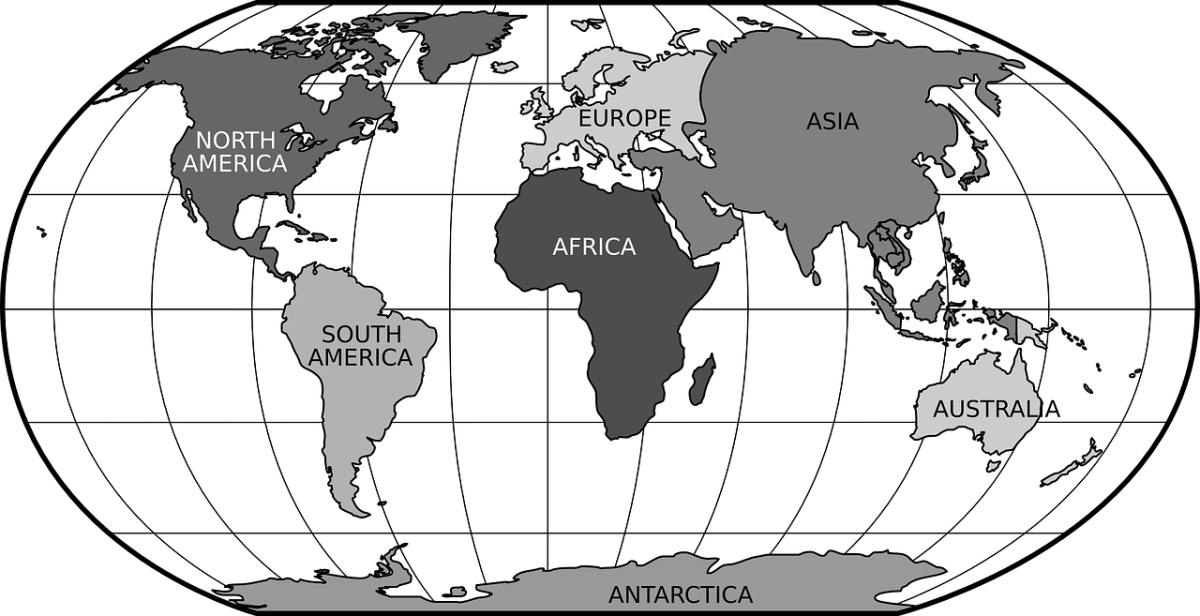
Gathering of the Nations
There was something else Jesus had alluded to in his predictions of the signs of the end times—the gathering of the nations:
When the Son of man shall come in his glory … then shall he sit upon the throne of his glory: And before him shall be gathered all nations … (Matthew 25:31-32)
The gathering of the nations—this was new as well. And how was that to be achieved? By the same Christian flock.
How? It turned out to be through exploration, evangelisation, education, and (“the nuclear option”) nation-building through colonisation. The Europeans were unaware of what prophetic goals they were fulfilling when they set out to explore, conquer, and colonise populations across the globe.
Today, nation-building has practically ended, and all the nations of the world are visibly gathered under the umbrella of the United Nations Organization.
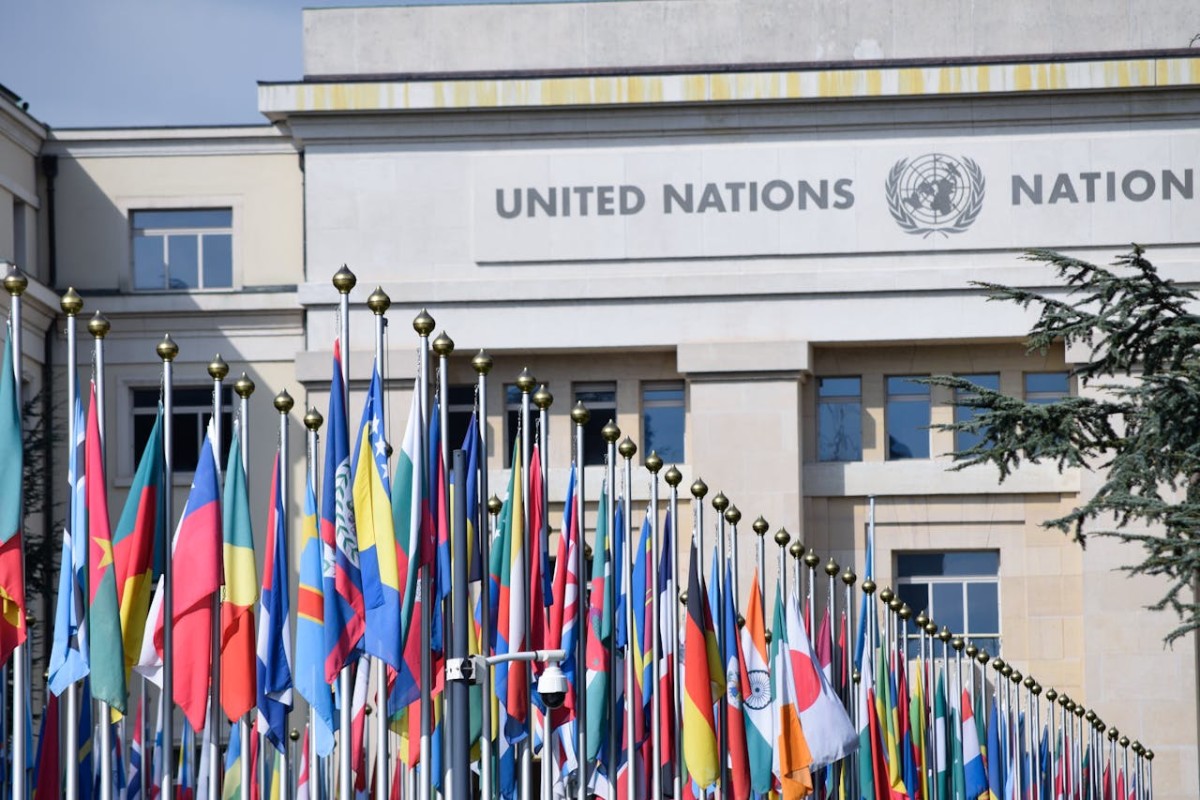
The Assurance of Success
The faith of Christ had the necessary spiritual potency and mandate from God to carry believers to the ends of the earth. With the assignment given to them also came the promise of ultimate success.
Behold, I give unto you power to tread on serpents and scorpions, and over all the power of the enemy: and nothing shall by any means hurt you. (Luke 10:19)
And these signs shall follow them that believe; in my name shall they cast out devils; … they shall take up serpents; and if they drink any deadly thing, it shall not hurt them … (Mark 16:17-18)
With these words, the invincibility of the faithful was implicitly assured and the ultimate success of the global enterprise guaranteed.
Europeans Were Not Intrinsically Superior
Returning to this article’s original question: Did the dominance of Europeans over all other peoples of the earth have anything to do with their white colour, race, or DNA?
The answer is: Neither their colour, race, DNA nor any other distinguishing characteristic made Europeans superior to other races and ethnicities of the planet.
The Great Commission Gave Europeans the Edge
Through a millennium and a half of religious practice, Christians—the bulk of whom were in Europe—attained the necessary spiritual and material ascendancy to take on the global agenda assigned to them by their Lord.
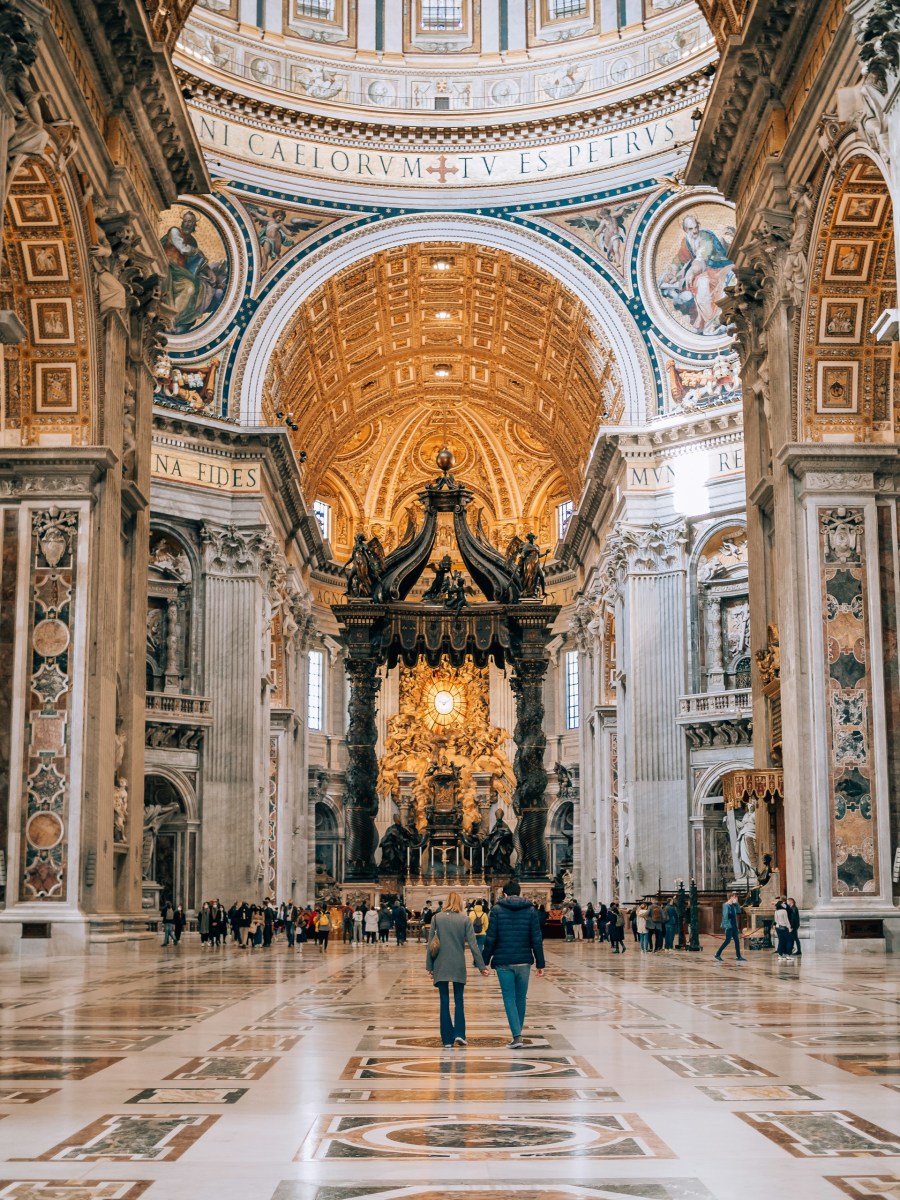
Proof That Europeans Were Not Superior
Europeans had the same human frailties that all other humans suffer from. These were on display within their continent—in fratricidal wars and abuses of all kinds.
Nor were they better humans when they set out to conquer the world. We cannot forget the brutal trans-Atlantic slave trade, genocidal wars, exploitation of diverse indigenous populations, expropriation of their inheritance, plunder of their treasures, and attempts at the erasure of their identities, all these within the framework of racial discrimination, subjugation, and oppression.
And these alone are proof that Europeans lacked any claim to moral superiority over others despite their Christian faith.
What Should Define Europeans
But in the end, this is not what should define Europeans. What should instead define them is the power of the Christian spirit that propelled them to great heights of global excellence and unrivalled achievements.
It may have taken almost two millennia, but Christendom, as embodied by the populations of Europe, demonstrated what the power of God can achieve against all odds. Their triumph was not theirs alone but that of the entire human race.
They brought the world together in preparation for the next stage of its journey. The afterglow of their phenomenal achievements remains with us today.
The Decline of Christianity in Europe
Today, Europe is in terminal decline as a global power—a decline that mirrors the general decline of Christianity on the continent. Incidentally, such a decline brings to fulfilment the other element of Jesus’ prediction:
And this gospel … shall be preached in all the world for a witness unto all nations; and then shall the end come. (Matthew 24:14)
Thus, the Christian Dispensation has come to the end of its term (no matter what the followers say), and a new religious Dispensation must thus be beckoning on the horizon.
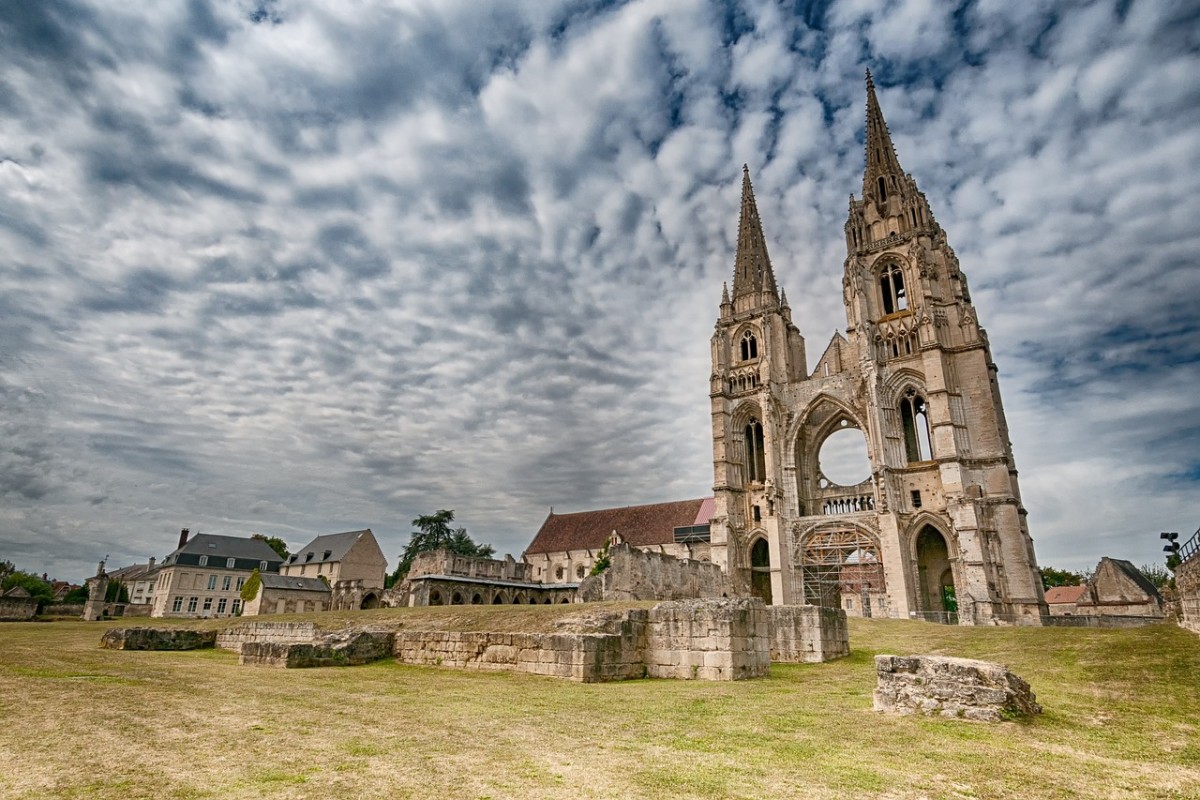
This content is accurate and true to the best of the author’s knowledge and is not meant to substitute for formal and individualized advice from a qualified professional.
© 2024 Kobina Amissah-Fynn


